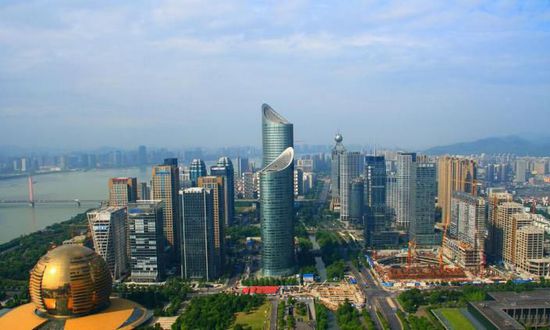By Tom McGregor, CNTV Panview commentator
The Group of 20 member states (G20) is composed of the top 20 most influential nations in the world, along with the European Union (EU), which was formed in 1999 as an offshoot of the G7.

The G20 encourages both developed and developing nations to work together to generate more cross-border trade and investment that would strengthen the global economy.
The next G20 Summit is scheduled for eastern China's Huangzhou on Sept. 4-5. Leaders of all G20 nation states are expected to attend.
China's Foreign Ministry has extended special invitations to a few developing countries, including: Chad, chair of African Union (AU), Laos, chair of ASEAN (Association of Southeast Asian Nations), Senegal, chair of New Partnership for African Development (NEPAD), along with Egypt and Kazakhstan.
Inviting emerging markets to Huangzhou
Developed countries, such as the United States, United Kingdom, Germany, France and Japan appear to have exploited their influence over global governance for far too long, which may explain lagging gross domestic product (GDP) growth rates.
Beijing is making a bold move to invite some non-G20 member states to the conference. Many emerging markets have enjoyed higher annual GDP growth rates than their peers in the developed world.
"The developing world is best represented in the upcoming summit in Huangzhou, making it the most inclusive," Outlook magazine quotes China's Foreign Minister Wang Yi as saying.
Additionally, Beijing has played a more pivotal role to support developing nations by launching the Belt and Road initiative in 2013 and encouraging more Chinese companies to invest in Africa.
Africa's industrialization reboot
Africa is a continent rich in natural resources, with a young and vibrant population. The African people stand poised to march towards a brighter future, but they continue to face serious challenges.
Much of the region remains under-developed with poor infrastructure. Many African companies have little access to finance mechanisms, while more roads, power plants and industrial zones should be built to improve quality of life for all Africans.
China's FM Wang had endorsed the African Union's 2063 agenda, which targets the industrialization of all African (54) countries by that year. Chinese President Xi Jinping had also pledged $US60bn. in South-South Cooperation for African development when he spoke at FOCAC (Forum for China-Africa Cooperation) last year.
Rising FDI lights the way
China's emergence as an economic giant can serve as a role model for poor countries hoping to capture greater prosperity. For the past few decades, China opened its doors to the global business community, sparking a huge wave of foreign direct investments (FDI).
Accordingly, China had become a manufacturing hub with its low labor wages, cheaper production costs and strong logistics to export goods worldwide. Yet, China is becoming a victim of its own success and Chinese factories are moving elsewhere to stay profitable.
That means Chinese companies are making bigger investments in the emerging markets and such activities are important since developing countries have been constrained by low financial capital and low reserves of foreign exchange.
Chinese companies can boost capital flows to facilitate more trade & investments. China's Belt & Road initiative, a strategy to build more infrastructures in Asia, the Middle East, Europe and Africa via a funding mechanism called AIIB (Asian Infrastructure Investment Bank) would be key factors to enhance development in the emerging markets.
Focus on business not politics in G20 Huangzhou Summit
If the G20 wishes to hold sway over global governance, G20 leaders at the Huangzhou Summit should concentrate more on economic issues and avoid addressing sensitive political topics that would lead to diplomatic conflicts.
The world benefits when countries grow richer where more cross-border trade and investment can generate higher annual GDP growth rates for all nations.

Tmcgregorchina@yahoo.com
WeCaht: 86 13439758718
( The opinions expressed here do not necessarily reflect the opinions of Panview or CCTV.com. )

Panview offers an alternative angle on China and the rest of the world through the analyses and opinions of experts. We also welcome outside submissions, so feel free to send in your own editorials to "globalopinion@vip.cntv.cn" for consideration.















